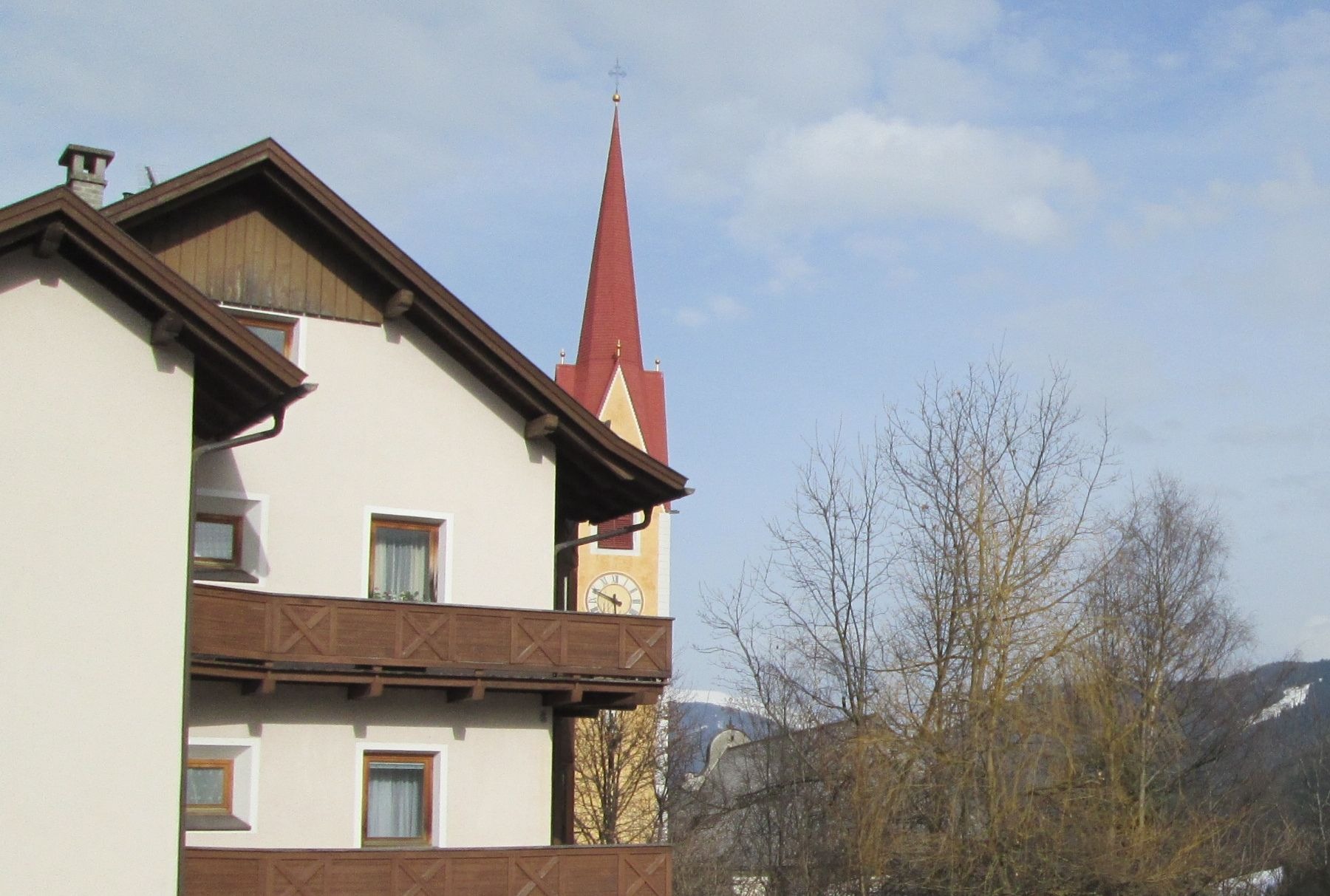Free University of Bozen-Bolzano – unibz
Faculty of Education, Campus Brixen-Bressanone
Collaborative Re-Design with Schools (CoReD) "Getting together to change school space"
Research shows that well-designed learning spaces can impact on the wellbeing, engagement and attainment of learners, and provide pivotal support for school-level change. Raising educators’ awareness of school space is beneficial, enabling them to adjust their setting or their practices. If new or redesigned school premises are to be successful, we need education professionals to appreciate the impact of school space and be supported to contribute in an informed way to discussions and change.
School users contribution could, and should, range from evaluating their own classroom or school space, to changing local space and practice, through to engaging with national policy agendas relevant to school premises.
The overarching aim of this project is to undertake activities and develop resources that will result in increased understanding of educational environments, firstly by education professionals within their own contexts, but subsequently more widely, influencing local and national debates and policy. The project activities and outputs will support teachers and school leaders to engage more effectively with their learning environment, empowering them in decisions made about facilities, material resources and digital provision.
CoReD researchers have devised general approaches and specific methods for use in their own research when working with teachers, school leaders and students to develop school learning environments. The aim now is to develop internationally trialled resources, which can be used by the teaching profession as freely-available, stand-alone tools that do not need to be implemented or analysed by university researchers. This aim will be achieved through collaborative work between the project partners and education professionals, trialling the tools across six diverse European countries. The resulting tools, case studies and practitioner guides will be translated into a range of languages and hosted on an open-access website linked to relevant media.
Collaboratively, we will drive improvements in education through supporting school communities to understand the significance of the learning environment and to undertake informed change.
CoReD in Italy, especially in South Tyrol
In Northern Italy, in the autonomous province of South Tyrol, you will find a unique educational landscape characterised by its special school architecture. In the school building process, the educational needs of the individual schools with their respective students and teachers, the locations and the communities are taken into account. The obligation to develop a pedagogical organisational concept in phase zero, which is anchored in the building law (www.provinz.bz.it/hochbau/bestimmungen-richtlinien/891.asp), underlines the importance of pedagogically oriented planning and building. These pedagogical organisational concepts describe the rooms, the use of space and the equipment in detail for each school building project. Usually, this concept is worked out by all parties involved because students and teachers usually have a quite exact idea of their ideal space for learning and teaching, but often do not know how to explain it to an architect or a property developer. Therefore, qualified support is necessary. This support is provided by the network "learn + space / spazio + apprendimento / lerch + imparè" in which teachers, architects and representatives of the school administration work together.
Not only the extensive school autonomy of the province of South Tyrol is a special feature, but also the trilingualism of the province and the school system, which is structured according to the three languages - Italian, German, Ladnian - and is integrated into the Italian educational system at the national level. Even if the three South Tyrolean educational systems differ slightly in their orientation, innovative school buildings can be found across the language borders. The school building architecture thus also combines linguistic and cultural differences and directs the attention to the pedagogical work.
The tool developed by the Italian team of CoReD is Cartographic Observation.
Free University of Bozen-Bolzano – unibz
The Free University of Bozen-Bolzano was founded in 1997. Our university has a strong international outlook, as testified by its multilingual courses (German, Italian, English and Ladin) and the high number of students and teaching staff from abroad.
The university has five faculties, and a high percentage of lecturers (35%) and students (17%) come from abroad and they study, teach and do research in the fields of Economics, Natural Sciences, Engineering, Social Sciences, Education and Design. We have 4,100 students registered to more than 30 undergraduate and postgraduate degree courses.
The taught modules on offer and our research projects are linked to international and inter-regional networks. For example, within the Euregio project, we are partnered with the universities of Innsbruck and Trento, and we are committed to reaching top quality standards.
Our teaching and research programmes revolve around five faculties and two research centres:
- Faculty of Economics and Management
- Faculty of Education
- Faculty of Computer Science
- Faculty of Science and Technology
- Competence Centre for Regional History
- Competence Centre for Inclusion
What makes unibz stand out among all universities, in Italy and in Europe, is the multilingualism of its courses and research. The three official languages – Italian, German and English – are used during classes, meetings, conferences and in all events. Thus, the university offers an ideal environment not only to acquire specific knowledge in the disciplines at the basis of each one's degree course but also to master the communication skills required by employment and by an increasingly globalised society.
Free University of Bozen-Bolzano
About the Faculty of Education, Campus Brixen-Bressanone
More than 1600 students at our Campus in Brixen-Bressanone can rely on an excellent learning environment thanks to direct and regular contact with lecturers and state-of-the-art facilities. Currently, our teaching staff includes 32 lecturers and 39 researchers.
Our facilities include a well-equipped library, excellent IT services and the EduSpaces, a teaching and learning environment which offers different opportunities to students to connect their theoretical knowledge of education sciences with the educational challenges of her future occupation. The EduSpaces are:
- Lernwerkstatt
- MultiLab
- CESLab
- Research and Documentation Centre of South Tyrol's Educational History (FDZ/CDR)
The quality of our courses, based on the link between research, teaching and fieldwork, is also guaranteed by collaboration with institutions working on education and professional training, communication and culture, social services, social education and welfare in the region.
One special feature of the Faculty is the chair for Ladin Language and Culture and its Ladin Section where, apart from related scientific research, the teaching personnel for the primary schools of the Ladin valleys is trained.
Research carried out in the faculty focuses on seven main areas:
- Permanent Education – Processes and Projects of Education and Development with a Focus on South Tyrol;
- IN-IN Education: INnovative and INclusive Education;
- Psychology and wellbeing promotion in educational contexts;
- Languages and multilingualism in South Tyrol;
- Aesthetic experiences and communication;
- Educational Contexts, Disciplines and their Teaching in the Nursery and Primary School;
- Socio-cultural worlds: institutions, welfare, social professions, environment and population.
Our key research topics are those related to education in the family and in primary school; the development of professional skills for teachers in the wider context of lifelong education; intergenerational interaction; community development; social and cultural dynamics linked to the challenges posed by social inequality; sustainable social development and the wide interdisciplinary topic of teaching languages and linguistic competence in multilingual contexts.
About the IN-IN Education: Innovative and Inclusive Education
Situated within the faculty is the research cluster IN-IN Education, which was established three years ago, and which is where the researchers running the CoReD project are based. This research area focuses on developing approaches to teaching/learning skills and practices that are meaningful, evidence-based and original, in all educational institutions and in keeping with the global framework of values and policies of inclusive education. In relation to this, the interconnection between theory and practice guides our research work.
Specific research activities address the following themes:
- Educational spaces (open and structured learning environments);
- Teaching materials (Montessori, sensorial materials, autonomous work materials, etc.);
- Inclusive teaching and learning practices for heterogeneous groups (from the perspective of pupils with Special Educational Needs and/or from a gender studies perspective);
- Teacher’s professionalism in educational institutions from Nursery, to Kindergarten, Primary School, Secondary School and University;
- Competence-based assessment of students and teachers;
- School quality and development;
- ICT for education (coding and computational thinking);
- ICT for accessibility (with specific attention to pupils with disabilities);
- Inclusion of students with Special Educational Needs in teacher education degree courses;
- Social inclusion within and outside educational institutions;
- Inclusive school regulations and policies.
Coordinator: Prof. Ulrike Stadler-Altmann
The research team in South Tyrol, Italy
At the time of the CoReD project, Ulrike Stadler-Altmann was a full professor (ordinaria) at the Faculty of Education of the Free University of Bolzano. As chair holder and research cluster spokeswoman for General Didactics and School pedagogic, her research focused on school and teaching development, teacher professionalism, knowledge transfer processes, student self-concept, and gender in educational science, as can already be seen in her publications. She is a proven expert in the pedagogical design of the space for teaching and learning. Her particular interest lies in social practices in space, the empirical recording of teaching-learning actions and participatory design processes. She was a member of the South Tyrolean network lernen + raum and a founding member of the international research group DRAPES Design and Research in Educational Spaces (https://www.researchgate.net/project/DRAPES-Design-Research-and-Practice-in-Educational-Spaces). In addition, she directed the EduSpace Learning Workshop, which focuses on the learning of didactical thinking, transfer processes and spatial design elements for teaching-learning processes.
Humboldt-Universität zu Berlin
In May 2023 Prof. Dr. Ulrike Stadler-Altmann began working at Humboldt-Universität zu Berlin, where she heads the Department of School Education. Learning environments, whether they are analogue or digital, continue to be one of her main areas of research.
To contact Prof. Dr. Stadler-Altman go to:
https://www.erziehungswissenschaften.hu-berlin.de/de/institut/abteilungen/didaktik/mitarb/usta


